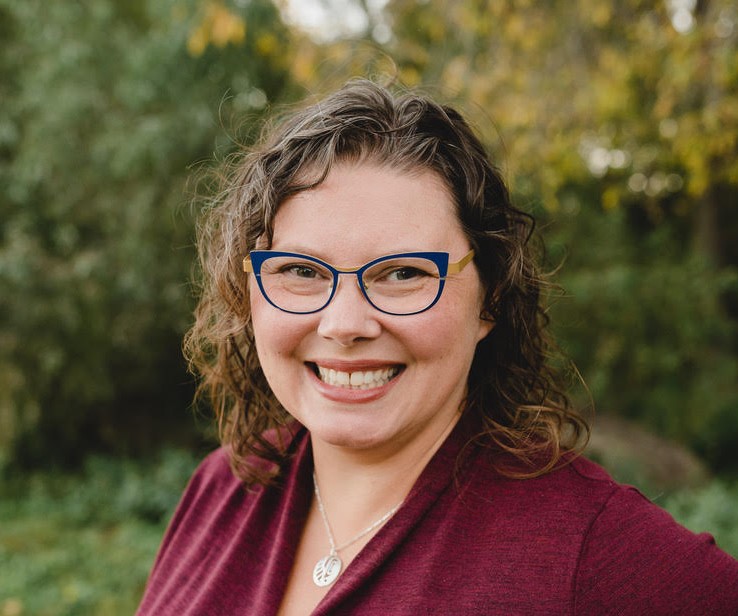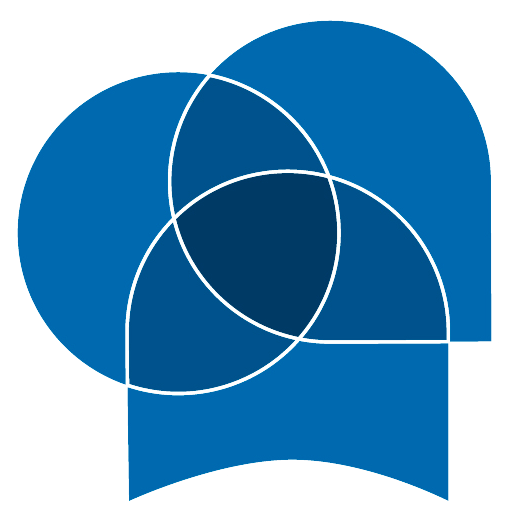Présenté par l'Université du Manitoba
Qu'est-ce qui fait qu'un projet ou un programme d'histoire orale suit un processus éthique et comment faire pour utiliser l'histoire orale dans votre musée?
Dans le webinaire suivant, Pauline Tennent et Heather Bidzinski partagent leurs expériences de l'emploi d'histoire orale dans un contexte de recherche, de collection et d'exposition, tout en abordant certains défis courants. Cet atelier explore la définition de l'histoire orale, les lignes directrices et les ressources disponibles, et comment créer une approche équilibrée entre la gestion des collections, l'engagement de la communauté et les besoins en matière de programmation. Que vous partiez de zéro ou que vous gériez déjà des collections historiques, cette session vise à répondre à certaines questions concernant les projets, les programmes et les collections d'histoire orale.
Panélistes

Heather Bidzinski est chef du département des archives et des collections spéciales de l'Université du Manitoba. Archiviste de formation, elle possède 15 ans d'expérience dans le domaine des archives, de la gestion des documents et de l'entretien des collections. Elle a eu le privilège de perfectionner ses compétences auprès d'institutions telles que Bibliothèque et Archives Canada (Ottawa, ON), Nova Scotia Archives (Halifax, NS), Hudson's Bay Company Archives (Winnipeg, MB) et Provincial Archives of Manitoba (Winnipeg, MB). Elle s'installe dans ses nouvelles fonctions à l'Université du Manitoba après avoir passé près de dix ans au Musée canadien des droits de la personne. Elle participe activement à la communauté archivistique en siégeant au comité et au conseil d'administration de l'Association canadienne des archivistes et de l'Association for Manitoba Archives. Son travail continu avec la Couverture des témoins l'inspire dans sa démarche d'intégration du savoir traditionnel et des modes de connaissance et d'existence autochtones dans la pratique archivistique actuelle.

Pauline Tennent (pronoms féminins) est la directrice du Centre for Human Rights Research (CHRR) de l'Université du Manitoba.. Elle est une chercheuse non-autochtone qui travaille depuis quinze ans sur des questions liées à la réconciliation, au colonialisme de peuplement, aux mouvements sociaux et à la justice sociale. Elle possède une grande expérience des méthodologies de recherche qualitatives et communautaires, ainsi que des approches innovantes et artistiques du développement, de la traduction et de l'échange de connaissances. Elle a notamment travaillé avec des jeunes pour explorer leur compréhension de la santé et de l'équité, leur accès aux soins de santé, leurs expériences sur le lieu de travail et leurs expériences de la migration et de l'établissement. Pauline est titulaire d'une maîtrise en sciences sociales de l'Université de Glasgow et d'un doctorat en études sur la paix et les conflits de l'Université du Manitoba. Son doctorat portait sur les façons dont les éducateurs du Manitoba comprennent et vivent les relations entre les communautés autochtones et non-autochtones au Canada. Avant de rejoindre le CHRR, Pauline a travaillé avec IN●GAUGE au College of Nursing, au Musée canadien pour les droits de la personne et à l'Arthur V. Mauro Institute for Peace and Justice.
Références du webinaire
Lignes directrices et meilleures pratiques
Instituts de recherche en santé du Canada, Conseil de recherches en sciences naturelles et en génie du Canada et Conseil de recherches en sciences humaines du Canada. (2014). Énoncé de politique des trois conseils : Éthique de la recherche avec des êtres humains. Tiré de : https://ethics.gc.ca/fra/home.html
Jardin numérique de la recherche autochtone collaborative (mettant en lumière les projets et méthodologies de recherche autochtone collaborative). Lancé en 2022. Tiré de : www.collaborativeindigenousresearch.com
Centre de gouvernance de l'information des Premières Nations. (2014). Propriété, contrôle, accès et possession (PCAP®) : La voie vers la gouvernance de l'information des Premières Nations. Ottawa, ON. Récupéré de : https://fnigc.ca/fr/les-principes-de-pcap-des-premieres-nations/
Institute of Museum and Library (n.d.). « L'histoire orale à l'ère numérique ». Disponible à l'adresse suivante : http://ohda.matrix.msu.edu/
Local Contexts. (n.d.) « Grounding Indigenous Rights ». Disponible à l'adresse suivante : www.localcontexts.org
Service des parcs nationaux. (2022). « Faciliter un retour respectueux ». Disponible à l'adresse suivante : https://www.nps.gov/subjects/nagpra/index.htm
Oral History Association. (2018). Principles and Best Practices. Tiré de : https://oralhistory.org/principles-and-best-practices-revised-2018/
Apprentissage communautaire engagé de l'Université du Manitoba. (2022). « Working in Good Ways : A Pathway for Indigenous Community Engagement ». Disponible à l'adresse suivante : https://umanitoba.ca/community-engaged-learning/working-in-good-ways
OMPI. (s.d.). Ressources génétiques, savoirs traditionnels et expressions culturelles traditionnelles. Disponible à l'adresse suivante : https://www.wipo.int/tk/fr/
Rapports
Commission de vérité et de réconciliation du Canada. (2015a). Honorer la vérité, se réconcilier pour l'avenir. Récupéré de Winnipeg, Man. : www.trc.ca/assets/pdf/Honouring_the_Truth_Reconciling_for_the_Future_July_23_2015.pdf
Commission de vérité et de réconciliation du Canada. (2015b). Commission de vérité et de réconciliation du Canada : Appels à l'action. Récupéré de Winnipeg, Man. : https://nctr.ca/wp-content/uploads/2021/04/4-Appels_a_l-Action_French.pdf
Cadres juridiques
Assemblée générale des Nations unies, Déclaration des Nations unies sur les droits des peuples autochtones : résolution / adoptée par l'Assemblée générale, 2 octobre 2007, A/RES/61/295, disponible à l'adresse : https://www.refworld.org/docid/471355a82.html [consulté le 14 novembre 2022]
Articles de journaux
Absolon, K. (2019). Décolonisation de l'éducation et décolonisation des éducateurs. Intersectionalities : A Global Journal of Social Work Analysis, Research, Polity, and Practice, 7(1), 9-29.
Battiste, M. (2013). Decolonizing education: Nourishing the learning spirit. Saskatoon, Sask. : Purich Publishing Limited.
Benson, K. et Nagar, R. (2006). Collaboration as resistance? Reconsidering the processes, products, and possibilities of feminist oral history and ethnography. Gender, Place & Culture, 13(5), 581-592.
Bhebhe, S, & Ngoepe, M. « Building counter-archives : oral history programmes of the Sinomlando Centre and Memory Work in Africa and the South African History Archive ». Information Development 38, no. 2 (2022) : 257-267.
Bishop, R. (2005). Freeing ourselves from neo-colonial domination in research: A Kaupapa Māori approach to creating knowledge. Dans N. K. Denzin & Y. S. Lincoln (Eds.), The SAGE Handbook of Qualitative Research (3e ed., 109-138). Thousand Oaks, CA : SAGE Publications, Inc.
Bonilla-Silva, E. et Zuberi, T. (2008). Toward a definition of white logic and white methods. Dans T. Zuberi & E. Bonilla-Silva (Eds.), White logic, white methods : Racism and methodology (3-30). Lanham, MD : Rowman & Littlefield Publishers, Inc. Carr, P. R. (2016). Whiteness and white privilege: Problematizing race and racism in a “color-blind” world, and in education. International Journal of Critical Pedagogy, 7(1), 51-74.
Bull, Anna Cento, et Chris Reynolds. « Uses of Oral History in Museums: A Tool for Agonism and Dissonance or Promoting a Linear Narrative? ». Museum & Society 19, no. 3 (2021) : 283- 300.
Carter J., & Orange J. (2012). Contentious Terrain : Defining a Human Rights Museology. Museum Management and Curatorship, 27(2).
Carter J. & Orange J. (2017). The Work of Museums : The Implications of a Human Rights Museology, présenté à la conférence de la Fédération internationale des musées internationaux des droits de l'homme, International Slavery Museum, Liverpool, 2011, https://www.fihrm.org/wp content/uploads/2017/07/J CarterJ Orange- Paper-2011.pdf
Denzin, N. K. et Lincoln, Y. S. (2008). Introduction : Critical methodologies and Indigenous inquiry. Dans N. K. Denzin, Y. S. Lincoln, & L. T. Smith (Eds.), Handbook of critical and Indigenous methodologies (1-20). Los Angeles, CA : SAGE Publications, Inc.
George, K. et Stratford, E. (2016). Oral history and human geography. Dans I. Hay (Ed.), Qualitative research methods in human geography (4th ed., 189-201). Don Mills, Ont. : Oxford University Press.
Grande, S. (2008). Red pedagogy: The un-methodology. Dans N. K. Denzin, Y. S. Lincoln, & L. T. Smith (Eds.), Handbook of critical and Indigenous methodologies (233-254). Los Angeles, CA : SAGE Publications, Inc.
Grande, S. (2018). Refusing the university. Dans M. Spooner & J. McNinch (Eds.), Dissident knowledge in higher education (168-192). Récupéré de : https://ourspace.uregina.ca/bitstream/handle/10294/8299/Dissident%20Knowledge.pdf?sequ ence=1&isAllowed=y
Guba, E. et Lincoln, Y. S. (1994). Competing paradigms in qualitative research. Dans N. K. Denzin & Y. S. Lincoln (Eds.), Handbook of qualitative research (102-117). Thousand Oaks, CA : SAGE Publications, Inc.
Hart, M. A. (2010). Indigenous worldviews, knowledge, and research: The development of an Indigenous research paradigm. Journal of Indigenous Voices in Social Work, 1(1), 1-16.
High S., Research Ethics, Centre for Oral History and Digital Storytelling, Université Concordia, http://storytelling.concordia.ca/toolbox/ethics
Islam, N. (2000). Research as an act of betrayal : Researching race in an Asian community in Los Angeles. Dans F. Winddance Twine & J. W. Warren (Eds.), Racing research, researching race : Methodological dilemmas in critical race studies (35-66). New York, N.Y. : New York University Press.
Janesick, V. J. (2014). Oral history interviewing: Issues and possibilities. The Oxford handbook of qualitative research (300-314). Oxford University Press.
Janesick, V. J. (2019). Oral history, the public record, and the story. Dans P. Leavy (Ed.), The Oxford handbook of methods for public scholarship (289-303). Oxford University Press.
Jessee, E. (2011) The Limits of Oral History : Ethics and Methodology Amid Highly Politicized Research Settings, The Oral History Review, 38:2, 287-307, DOI : 10.1093/ohr/ohr098.
Kovach, M. (2005). Emerging from the margins: Indigenous methodologies. Dans L. Brown & S. Strega (Eds.), Research as resistance : Critical, Indigenous and anti-oppressive approaches (19-36). Toronto, Ont. : Canadian Scholars' Press.
Kovach, M. (2009). Indigenous methodologies: Characteristics, conversations and contexts. Toronto, Ont. : University of Toronto Press.
Memmi, A. (1991). The colonizer and the colonized (Expanded ed.). Boston, MA : Beacon Press.
Moosa-Mitha, M. (2005). Situating anti-oppressive theories within critical and difference centred perspectives. Dans L. Brown & S. Strega (Eds.), Research as resistance : Critical, Indigenous and anti-oppressive approaches (37-72). Toronto, Ont. : Canadian Scholars' Press.
Mulvihill, T & Swaminathan, R. (2022) Oral History and Qualitative Methodologies. 1ère ed. Taylor and Francis.
Olive, J. L. (2014). Reflecting on the tensions between emic and etic perspectives in life history research: Lessons learned. Forum : Qualitative Social Research, 15(2).
Portelli, A. (2010). They Say in Harlan County: An Oral History. Oxford : Oxford University Press.
Portelli, A. (2003). The Order Has Been Carried Out: History, Memory, and Meaning of a Nazi Massacre in Rome. New York : Palgrave MacMillan.
Portelli, A. (1991). The Death of Luigi Trastulli and Other Stories: Form and Meaning in Oral History. Albany : State University of New York Press.
Potts, K. et Brown, L. (2005). Becoming an anti-oppressive researcher. Dans L. Brown & S. Strega (Eds.), Research as resistance : Critical, Indigenous and anti-oppressive approaches (255- 287). Toronto, Ont. : Canadian Scholars' Press.
Shopes, L. (n.d.). What is oral history? In Making sense of evidence series on history matters: The U.S. survey on the web (1998–2019) (1-23). American Social History Productions, Inc., http://historymatters.gmu.edu
Shopes, L. (2015) After the Interview Ends : Moving Oral History Out of the Archives and into Publication, The Oral History Review, 42:2, 300-310, DOI : 10.1093/ohr/ohv037.
Tuck, E. et Guishard, M. (2013). Uncollapsing ethics : Racialized sciencism, settler coloniality, and an ethical framework of decolonial participatory action research. Dans T. M. Kress, C. Malott, & B. Porfilio (Eds.), Challenging status quo retrenchment : New directions in critical qualitative research (3-28). Greenwich, CT : Information Age Publishing, Inc.
Tuck, E. et Yang, K. W. (2014). R-words: Refusing research. Dans D. W. Paris, R. (Ed.), Humanizing research : Decolonizing qualitative research with youth and communities (223-248). Thousand Oaks, CA : SAGE Publications, Inc.
Tuhiwai Smith, L. (1999/2012). Decolonizing methodologies: Research and Indigenous peoples. Londres, Royaume-Uni : Zed Books.
Tuhiwai Smith, L. (2000). Kaupapa Māori Research. Dans M. Battiste (Ed.), Reclaiming Indigenous voice and vision (225-247). Vancouver, C.-B. : UBC Press.
Wilson, S. (2001). What is an Indigenous research methodology?. Canadian Journal of Native Education, 25(2), 175-179.
Wilson, S. (2008). Research is Ceremony: Indigenous research methods. Black Point, N.-É. : Fernwood Publishing.
